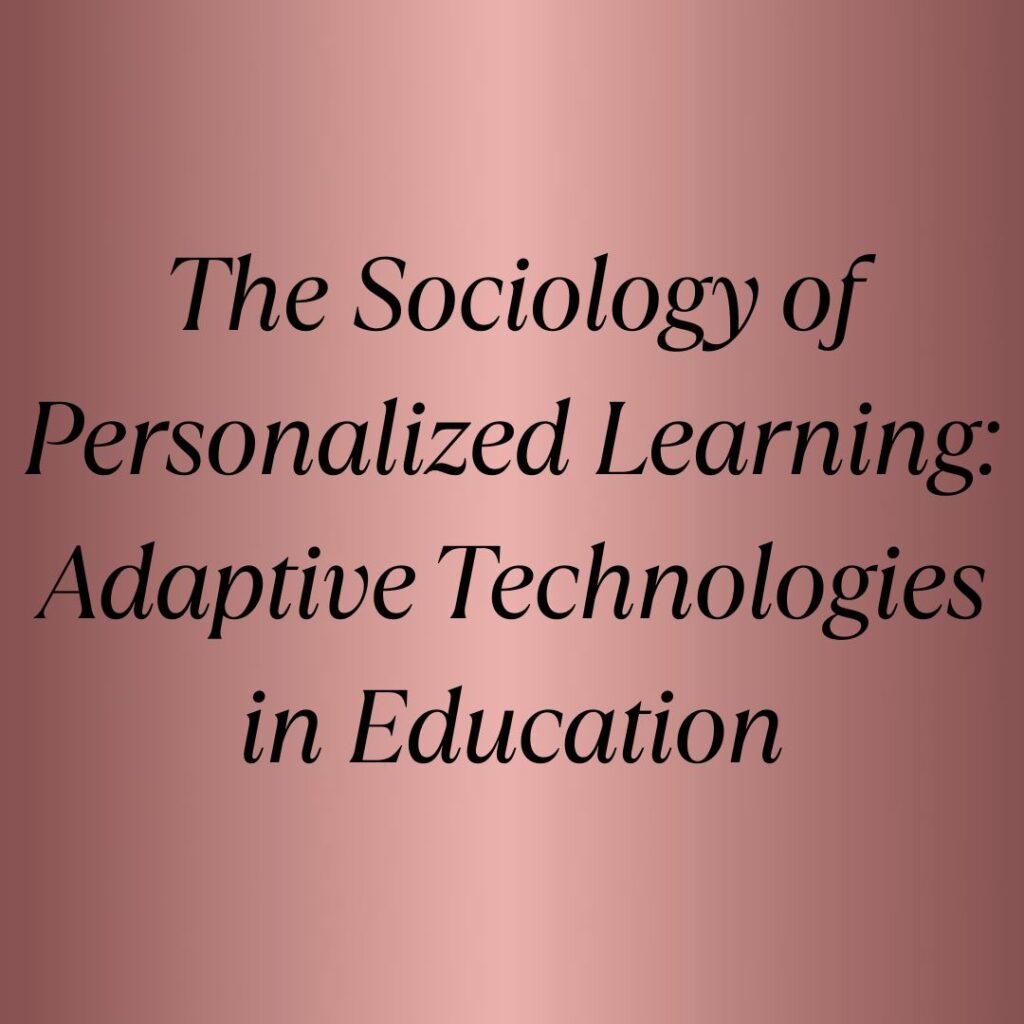In the rapidly evolving landscape of education, personalized learning has emerged as a transformative approach that tailors education to individual student needs, preferences, and learning styles. At the heart of this educational paradigm shift lies adaptive technologies, which harness the power of data and algorithms to personalize the learning experience like never before.
Understanding Personalized Learning
Personalized learning is more than just a buzzword; it represents a fundamental shift from traditional one-size-fits-all teaching methods to customized educational experiences that cater to the unique strengths and challenges of each learner. This approach acknowledges that students learn at different paces and through different modalities, thereby requiring varied instructional strategies to optimize learning outcomes.
The Role of Adaptive Technologies
Adaptive technologies play a pivotal role in making personalized learning scalable and effective. These technologies encompass a range of tools and platforms that analyze data on students’ learning behaviors, performance, and preferences. By leveraging artificial intelligence (AI) and machine learning algorithms, adaptive technologies dynamically adjust the content, pace, and presentation of learning materials to suit each student’s individual needs.
How Adaptive Technologies Work
Imagine a classroom where each student interacts with digital learning materials that respond in real-time to their progress and comprehension. Adaptive learning systems track students’ responses to questions, their speed of learning, and even their engagement levels. Based on this data, the system can automatically modify the difficulty of tasks, suggest additional resources, or provide targeted feedback to address areas of difficulty.
For instance, platforms like Khan Academy use adaptive algorithms to offer personalized learning paths in subjects ranging from mathematics to computer science. Students progress through lessons at their own pace, with the platform adjusting the difficulty of problems based on their performance.
Real-World Applications
The impact of adaptive technologies extends beyond the classroom walls. Institutions and educators worldwide are adopting these tools to enhance engagement, improve retention rates, and close achievement gaps. For example, in a study conducted by the Bill & Melinda Gates Foundation, schools using adaptive learning reported higher student satisfaction and increased academic performance compared to traditional instructional methods.
Benefits for Students
One of the primary benefits of personalized learning through adaptive technologies is its ability to foster self-directed learning and critical thinking skills. Students gain autonomy over their learning process, enabling them to explore topics deeply and master concepts at their own pace. This individualized approach also promotes inclusivity by accommodating diverse learning needs and styles, thereby empowering students of all backgrounds to succeed.
Challenges and Considerations
Despite its potential benefits, the widespread implementation of adaptive technologies faces several challenges. Concerns about data privacy, algorithmic bias, and the equitable distribution of resources remain significant considerations. Educators must navigate these issues thoughtfully to ensure that personalized learning initiatives are ethically and effectively implemented.
The Future of Personalized Learning
Looking ahead, the evolution of adaptive technologies holds promise for further transforming education. Innovations in AI, augmented reality (AR), and virtual reality (VR) are poised to create even more immersive and interactive learning experiences. As these technologies become more sophisticated and accessible, they have the potential to redefine how knowledge is acquired and applied in the 21st century.
Conclusion
In conclusion, the sociology of personalized learning through adaptive technologies represents a paradigm shift in education. By harnessing the power of data-driven insights and AI-driven algorithms, educators can tailor learning experiences that meet the unique needs of every student. As we continue to navigate the complexities and opportunities of this digital age, embracing personalized learning not only enhances educational outcomes but also prepares students to thrive in an increasingly interconnected and diverse global society.
Through adaptive technologies, the future of education is not just personalized—it’s personalized with precision and purpose, empowering learners to reach their full potential in ways that were once unimaginable.
This article explores the transformative impact of adaptive technologies on personalized learning, highlighting both its opportunities and challenges in shaping the future of education. As we strive to meet the diverse needs of learners worldwide, adaptive technologies stand at the forefront of innovation, paving the way for a more inclusive, equitable, and effective educational experience.






